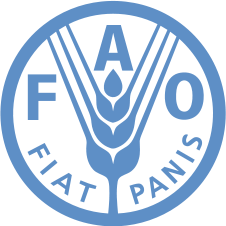
Mexico is the world's fattest nation, according to a study by the UN Food and Agriculture Organization (FAO). The 2013 FAO report, "Food Systems For Better Nutrition", indicated that as of 2008, 32.8 percent of Mexican adults were obese, meaning that Mexicans made up the largest percentage of the world's obese. Of the 1.4 billion people worldwide who are overweight, 500 million are obese, while two billion others suffer from vitamin deficiencies of some sort.
The report estimated that malnutrition cost the global economy about $3.5 trillion -- "unacceptably high" for the FAO, which attributed the difference to losses in productivity and spiking health care expenditures. The FAO says that in many developing countries, obesity has become a condition associated with poverty rather than with wealth, as it once was. The poor in countries like Mexico and Brazil, it says, may not go hunger as they once did, but now while the elite can choose to adopt a healthy lifestyle, the poor have fewer food choices and less access to nutrition education. Many people in these and other developing countries are moving in greater rates to cities, meaning that their eating habits may change, too, to include more packaged foods.
RELATED:
Mexico, China Sign 'Tequila Pact'
Corona Sold To Belgian Company
ACLU Lawsuit Says 'Voluntary' Deportations Not So Voluntary
According to the study, the number of overweight people is approaching the number of malnourished people worldwide for the first time. In Colombia, 41 percent of the population is overweight; in Brazil, 36 percent; and in China, the proportion of overweight adults surged more than 50 percent between years 1969 and 1992. The report also said that 26 percent of all children younger than age five suffer from stunted growth, and 31 percent suffer from vitamin-A deficiency. Experts say that lack of micronutrients like vitamins, iron and iodine are particularly common in developing countries.
The FAO urged global leaders to enhance nutrition in food systems in part through agricultural policies and in part through the promotion of behavioral change through education. "Agricultural research and development priorities must be made more nutrition-sensitive, with a stronger focus on nutrient-dense foods such as fruits, vegetables, legumes and animal-source foods," it wrote.
In January Mexico kicked off a campaign against hunger, La Cruzada Nacional Contra El Hambre (The National Cruzade Against Hunger), which seeks to address the structural causes of hunger. The FAO will be a major supporter of the campaign in areas like the design and coordination of social policy instruments as well as monitoring and evaluation.
© 2025 Latin Times. All rights reserved. Do not reproduce without permission.




